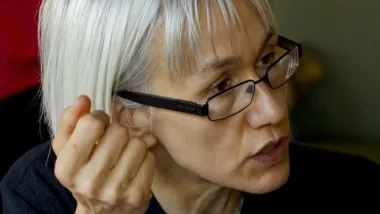Making the most of being a student requires more than just completing the course credits necessary for a degree. See my suggestions for activities beyond the classroom that are key to getting a great education.

In my current series of blogs I’m returning to earlier topics—this one on how to make the most of being a student. In that earlier blog I focused on four topics:
- Focusing attention on your own learning
- Helping your peers learn
- Building the capacity to continue learning after planning school
- Taking risks--being willing to "fail" in order to produce learning
However, as I explain below there are more ways to do this. You should engage in a range of these extracurricular activities with the balance depending on how much you need to earn money during semester, your prior work experience, and how you are already interacting with faculty.
- Read beyond the syllabus. When a faculty member mentions an author or idea in class, you can look it up. It will really enrich your education. This is the most important point on this list.
- Join student groups and organize activities. Getting involved with groups based in your program can build community; joining campus-wide groups can help you meet people with common interests but different trajectories.
- Join departmental committees open to students. This is a great way to influence your department but you also get to meet faculty in a collaborative setting. If you carry yourself well this can help you when you need to ask those same faculty to provide references.
- Attend conferences and talks. This is one of the times you’ll have access to a lot of this—and it can help you in your other class work by providing additional perspectives.
- Get an internship or do an independent real project for a client. This provides practical skills.
- Shadow someone—many career services offices can link you with alums in practice. Shadowing someone is a great way to get a feel for a particular type of job in a short period time—from a few hours to a few weeks. This is an activity that is most available to you when you are a student or a very recent grad—after that it would be much harder to set up. Now is the time.
- Work for pay, even outside planning, to get basic job skills. This is most important if you have little such experience and should be combined with other activities on this list.
- If you are doing most classes with only a few faculty members, try to broaden your visibility by working with others (e.g. organizing a conference, inviting a faculty member to speak, and then carrying it off well so they could field a brief reference phone call).
- If there are no faculty members who you’ve done more than one class with, or if your work has been less than stellar with the ones where you have done multiple classes, find a way to have some additional interactions with someone. It’s really hard to write a letter on the basis of one class. However you can increase interactions by doing an independent study, being a research assistant, or joining a departmental committee.
Of course you need to do the required classes and obtain the course credits necessary for your degree. However, these activities beyond the classroom are key to getting a great education.

Planetizen Federal Action Tracker
A weekly monitor of how Trump’s orders and actions are impacting planners and planning in America.

Chicago’s Ghost Rails
Just beneath the surface of the modern city lie the remnants of its expansive early 20th-century streetcar system.

Amtrak Cutting Jobs, Funding to High-Speed Rail
The agency plans to cut 10 percent of its workforce and has confirmed it will not fund new high-speed rail projects.

Ohio Forces Data Centers to Prepay for Power
Utilities are calling on states to hold data center operators responsible for new energy demands to prevent leaving consumers on the hook for their bills.

MARTA CEO Steps Down Amid Citizenship Concerns
MARTA’s board announced Thursday that its chief, who is from Canada, is resigning due to questions about his immigration status.

Silicon Valley ‘Bike Superhighway’ Awarded $14M State Grant
A Caltrans grant brings the 10-mile Central Bikeway project connecting Santa Clara and East San Jose closer to fruition.
Urban Design for Planners 1: Software Tools
This six-course series explores essential urban design concepts using open source software and equips planners with the tools they need to participate fully in the urban design process.
Planning for Universal Design
Learn the tools for implementing Universal Design in planning regulations.
Caltrans
City of Fort Worth
Mpact (founded as Rail~Volution)
City of Camden Redevelopment Agency
City of Astoria
City of Portland
City of Laramie






























